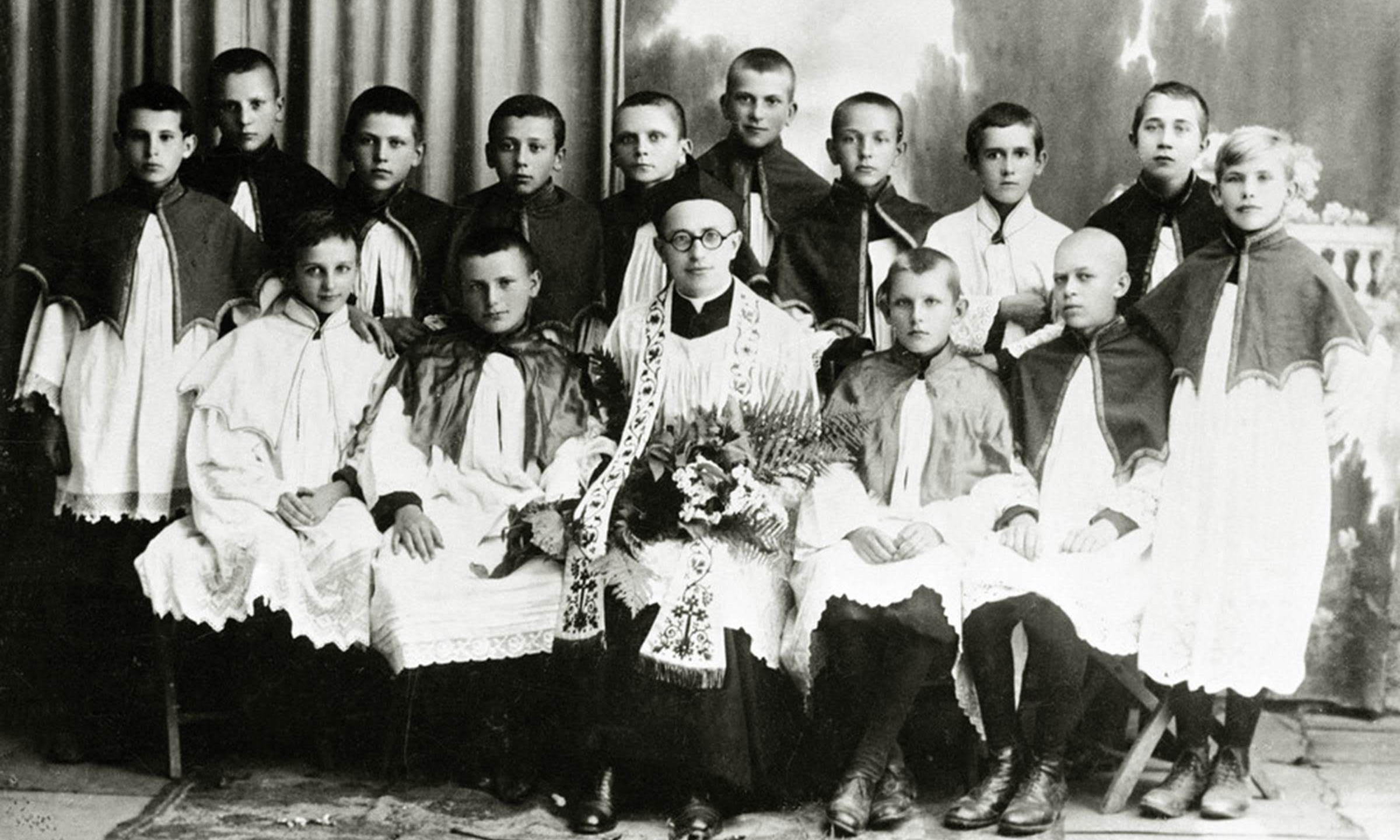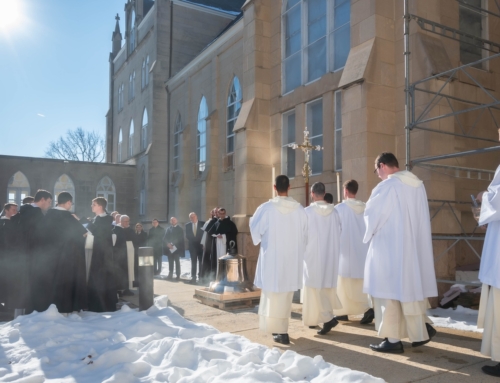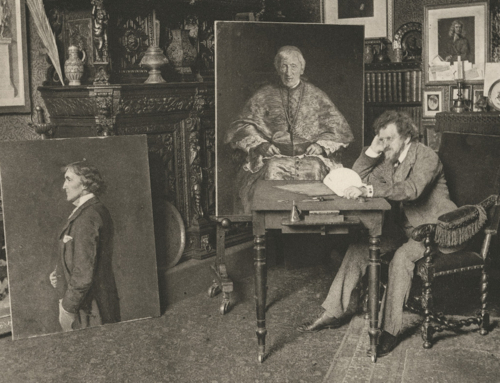Today marks what would have been the 100th birthday of Pope Saint John Paul II. Many facets of his life are apt for reflection, but none so directly addresses the core of his person as his appetite for prayer. Karol Wojtyła was the rare case of a public man whose holiness was almost palpable. Whether in dayspring silence or nighttime vigil, with beads, breviary, or sighs too deep for words (Rom 8:26), he typified Saint Paul’s exhortation to pray without ceasing (1 Thes 5:17). Those closest to him could not miss it—especially his papal handlers, who patiently bore repeated itinerary delays caused by his impromptu visits before the Eucharist.
The grace of John Paul’s mystical life finds its roots in his childhood, which was not outstanding in the often privileged and prodigious sense of those groomed to be future world leaders. Surely, Karol was a talented boy, but far more notable were the familial fidelity and adversity that would forge his manhood and interior life.
Writing on the 50th anniversary of his priesthood ordination, John Paul recalled that the example of his parents—and especially that of his father, who became a widower when Karol was only eight—served as his “first seminary” (Gift and Mystery, 20). When he was twelve, after the death of his older brother, Karol was left a motherless only child, at which point his father’s influence became even more pronounced. As pope, he would reflect: “[T]he violence of the blows which had struck [my father] opened up immense spiritual depths in him; his grief found its outlet in prayer” (“Be Not Afraid”: André Frossard and John Paul II, 14). Karol would wake during the night to find his father on his knees imploring the Lord. Their modest apartment truly became a “domestic church.”
One incident was pivotal for Karol’s spiritual maturation. Around the age of 10, “Lolek” was by his own admission a bit of a delinquent altar boy: “My mother wasn’t with us any more. … But my father, when he found out how sloppy my discipline was, said to me one day, ‘you are not being a very good [altar boy]. You don’t pray to the Holy Spirit enough. You ought to pray to him.’” The result was a lesson in the prayer for the seven gifts of the Holy Spirit—“what conviction his voice held as he told me that! I can still hear his voice saying those words”—a lesson whose “end-product,” John Paul said, would be his 1986 encyclical on the Holy Spirit, Dominum et Vivificantem (“Lord and Giver of Life”) (Portrait of John Paul II, 73–75). It’s a rare father who can lay claim to motivating a papal encyclical.
In the wake of that lesson from the household seminary, the whole remainder of Karol Wojtyła’s life would unfold as one grand work of the Spirit. The common thread running through his life—from orphanhood at age 20 to covert seminarian amid Nazi occupation to communism-subverting priest-professor to metropolitan archbishop to Vatican II contributor to supreme pontiff—was grace, that gift of divine life imparted by the Holy Spirit. When once asked “how—and for whom, for what—does the Pope pray,” he replied, “You would have to ask the Holy Spirit! The Pope prays as the Holy Spirit permits him to pray” (Crossing the Threshold of Hope, 19).
Today, a century after his birth, fifteen years since his death, and two weeks out from Pentecost, we might look to one of the most fecund fruits of that instruction “Lolek” received from his father. The year was 1979, the day the Vigil of Pentecost, the occasion the return of the Polish pontiff to his fatherland, where communism was regnant but repudiated. His message was direct: Pentecost is the birthday of the Church. There she received her great mission to set the globe aflame. Thence comes the power of her preaching and martyrdom. No earthly authority can definitively suppress her, can suppress her head, Christ, can oppress her subject, man. Where the Spirit reigns, so do light and truth.
And thus, amidst the physical pestilence and spiritual torpor of our own day, what but to cry out with Saint John Paul:
Amen.
✠
Photo provided by Fr. Maciej Zieba, O.P.







